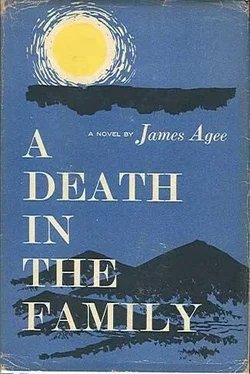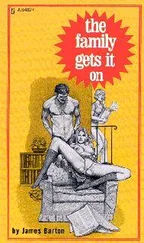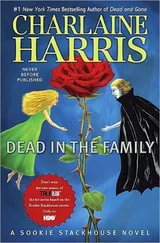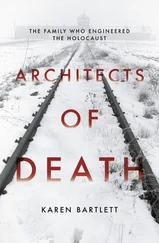To the child it looked as if his father were gazing oft into a great distance and, looking up into these eyes which looked so far away, he too looked far away: Oh, I look a way down yonder, Ann, uh what dyou reckon I see, A band of shinin angels, A comin' after me.
Git on board, little children, Git on board, little children, Git on board, little children, There's room for many and more.
He did not look down but looked straight on into the wall in silence for a good while, and sang: Oh, every time the sun goes down, There's a dollar saved for Betsy Brown, Sugar Babe.
He looked down. He was almost certain now that the child was asleep. So much more quietly that he could scarcely hear himself, and that the sound stole upon the child's near sleep like a band of shining angels, he went on: There's a good old sayin, as you all know, That you can't track a rabbit when there ain't no snow Sugar Babe.
Here again he waited, his hand listening against the child, for he was so fond of the last verse that he always hated to have to come to it and end it; but it came into his mind and became so desirable to sing that he could resist it no longer: Oh, tain't agoin to rain on, tain't agoin to snow: He felt a strange coldness on his spine, and saw the glistening as a great cedar moved and tears came into his eyes: But the sun's agoin to shine, and the wind's agoin to blow Sugar Babe.
A great cedar, and the colors of limestone and of clay; the smell of wood smoke and, in the deep orange light of the lamp, the silent logs of the walls, his mother's face, her ridged hand mild on his forehead: Don't you fret, Jay, don't you fret. And before his time, before even he was dreamed of in this world, she must have lain under the hand of her mother or her father and they in their childhood under other hands, away on back through the mountains, away on back through the years, it took you right on back as far as you could ever imagine, right on back to Adam, only no one did it for him; or maybe did God?
How far we all come. How far we all come away from ourselves. So far, so much between, you can never go home again. You can go home, it's good to go home, but you never really get all the way home again in your life. And what's it all for? All I tried to be, all I ever wanted and went away for, what's it all for?
Just one way, you do get back home. You have a boy or a girl of your own and now and then you remember, and you know how they feel, and it's almost the same as if you were your own self again, as young as you could remember.
And God knows he was lucky, so many ways, and God knows he was thankful. Everything was good and better than he could have hoped for, better than he ever deserved; only, whatever it was and however good it was, it wasn't what you once had been, and had lost, and could never have again, and once in a while, once in a long time, you remembered, and knew how far you were away, and it hit you hard enough, that little while it lasted, to break your heart.
He felt thirsty, and images of stealthiness and deceit, of openness, anger and pride, immediately possessed him, and immediately he fought them off. If ever I get drunk again, he told himself proudly, I'll kill myself. And there are plenty good reasons why I won't kill myself. So I won't even get drunk again.
He felt consciously strong, competent both for himself and against himself, and this pleasurable sense of firmness contended against the perfect and limpid remembrance he had for a moment experienced, and he tried sadly, vainly, to recapture it. But now all that he remembered, clear as it was to him, and dear to him, no longer moved his heart, and he was in this sadness, almost without thought, staring at the wall, when the door opened softly behind him and he was caught by a spasm of rage and alarm, then of shame for these emotions.
"Jay," his wife called softly. "Isn't he asleep yet?"
"Yeah, he's asleep," he said, getting up and dusting his knees. "Reckon it's later than I knew."
"Andrew and Amelia had to go," she whispered, coming over. She leaned past him and straightened the sheet. "They said tell you good night." She lifted the child's head with one hand, while her husband, frowning, vigorously shook his head; "It's all right, Jay, he's sound asleep;" she smoothed the pillow, and drew away: "They were afraid if they disturbed you they might wake Rufus."
"Gee. I'm sorry not to see them. Is it so late?"
"You must have been in here nearly an hour! What was the matter with him?"
"Bad dream, I reckon; fraid of the dark."
"He's all right? Before he went to sleep, I mean?"
"Sure, he's all right." He pointed at the dog. "Look what I found."
"Goodness sake, where was it?"
"Back in the corner, under the crib."
"Well shame on me! But Jay, it must be awfully dirty!"
"Naww; I dusted it off."
She said, shyly, "I'll be glad when I can stoop again."
He put his hand on her shoulder. "So will I."
"Jay," she drew away, really offended.
"Honey!" he said, amused and flabbergasted. He put his arm around her. "I only meant the baby! I'll be glad when the baby's here!"
She looked at him intently (she did not yet realize that she was near-sighted), understood him, and smiled and then laughed softly in her embarrassment. He put his finger to her lips, jerking his head towards the crib. They turned and looked down at their son.
"So will I, Jay darling," she whispered. "So will I."
His mother sang to him too. Her voice was soft and shining gray like her dear gray eyes. She sang, "Sleep baby sleep, Thy father watches the sheep," and he could see his father sitting on a hillside looking at a lot of white sheep in the darkness but why; "thy mother shakes the dreamland tree and down fall little dreams on thee," and he could see the little dreams floating down easily like huge flakes of snow at night and covering him in the darkness like babes in the wood with wide quiet leaves of softly shining light. She sang, "Go tell Aunt Rhoda," three times over, and then, "The old gray goose is dead," and then "She's worth the saving," three times over, and then "To make a featherbed," and then again. Three times over. Go tell Aunt Rhoda; and then again the old gray goose is dead. He did not know what "she's worth the saving" meant, and it was one of the things he always took care not to ask, because although it sounded so gentle he was also sure that somewhere inside it there was something terrible to be afraid of exactly because it sounded so gently, and he would become very much afraid instead of only a little afraid if he asked and learned what it meant. All the more, because when his mother sang this song he could always see Aunt Rhoda, and she wasn't at all like anybody else, she was like her name, mysterious and gray. She was very tall, as tall even as his father. She stood near a well on a big flat open place of hard bare ground, quite a way from where he saw her from, and even so he could see how very tall she was. Far back behind her there were dark trees without any leaves. She just stood there very quiet and straight as if she were waiting to be gone and told that the old gray goose is dead. She wore a long gray dress with a skirt that touched the ground and her hands were hidden in the great falling folds of the skirt. He could never see her face because it was too darkly within the shadow of the sunbonnet she wore, but from within that shadow he could always just discern the shining of her eyes, and they were looking straight at him, not angrily, and not kindly either, just looking and waiting. She is worth the saving.
She sang, "Swing low, sweet cherryut," and that was the best song of all. "Comin for to care me home." So glad and willing and peaceful. A cherryut was a sort of a beautiful wagon because home was too far to walk, a long, long way, but of course it was like a cherry, too, only he could not understand how a beautiful wagon and a cherry could be like each other, but they were. Home was a long, long way. Much too far to walk and you can only come home when God sends the cherryut for you. And it would care him home. He did not even try to imagine what home was like except of course it was even nicer than home where he lived, but he always knew it was home. He always especially knew how happy he was in his own home when he heard about the other home because then he always felt he knew exactly where he was and that made it good to be exactly there. His father loved to sing this song too and sometimes in the dark, on the porch, or lying out all together on a quilt in the back yard, they would sing it together. They would not be talking, just listening to the little sounds, and looking up at the stars, and feeling ever so quiet and happy and sad at the same time, and all of a sudden in a very quiet voice his father sang out, almost as if he were singing to himself, "Swing low," and by the time he got to "cherryut" his mother was singing too, just as softly, and then their voices went up higher, singing "comin for to carry me home," and looking up between their heads from where he lay he looked right into the stars, so near and friendly, with a great drift of dust like flour across the tip of the sky. His father sang it differently from his mother. When she sang the second "Swing" she just sang "swing low," on two notes, in a simple, clear voice, but he sang "swing" on two notes, sliding from the note above to the one she sang, and blurring his voice and making it more forceful on the first note, and springing it, dark and blurry, off the "l" in "low," with a rhythm that made his son's body stir. And when he came to "Tell all my friends I'm comin too," he started four full notes above her, and slowed up a little, and sort of dreamed his way down among several extra notes she didn't sing, and some of these notes were a kind of blur, like hitting a black note and the next white one at the same time on Grandma's piano, and he didn't sing "I'm comin' " but "I'm uh-comin," and there too, and all through his singing, there was that excitement of rhythm that often made him close his eyes and move his head in contentment. But his mother sang the same thing clear and true in a sweet, calm voice, fewer and simpler notes. Sometimes she would try to sing it his way and he would try to sing it hers, but they always went back pretty soon to their own way, though he always felt they each liked the other's way very much. He liked both ways very much and best of all when they sang together and he was there with them, touching them on both sides, and even better, from when they sang "I look over Jordan what do I see," for then it was so good to look up into the stars, and then they sang "A band of angels comin after me" and it seemed as if all the stars came at him like a great shining brass band so far away you weren't quite sure you could even hear the music but so near he could almost see their faces and they all but leaned down deep enough to pick him up in their arms. Come for to care me home.
Читать дальше












